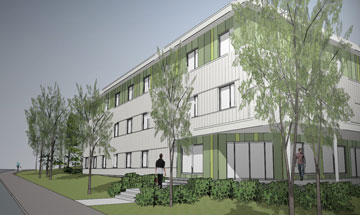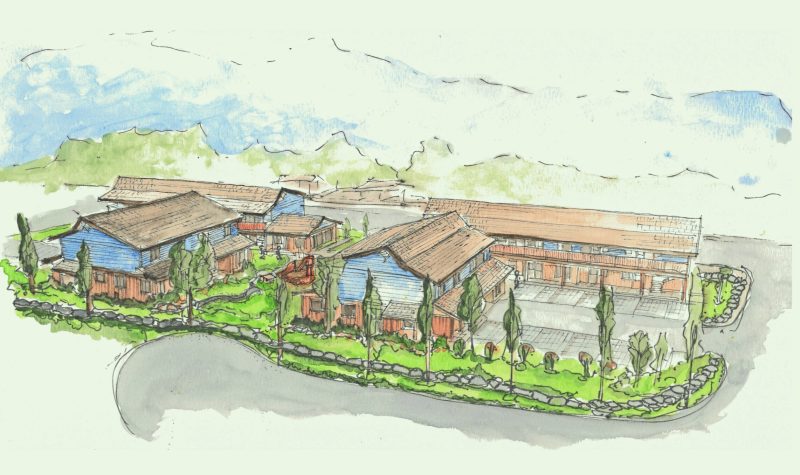Construction has begun on a new housing complex in Powell River to provide affordable homes for families and seniors with low to moderate incomes.
The new project is creating 24 rental units in the form of one, two and three-bedroom units within two townhouses and two apartment blocks. Each building will be outfitted with a communal laundry room and multipurpose room, as well as an outdoor children’s play area.
BC Housing has successfully relocated previous site residents to other affordable homes in the community from their eight single-family cottages that the new project is replacing. The displaced residents will be offered the option of moving back into the new complex once construction is completed. That timeline is currently projected for summer 2022.
The project is located at 6635 Cranberry St., Cranberry Place, and tenancy as well as maintenance will be managed by Life Cycle Housing Society.
In a news release from the Province, Frances Ladret, the society’s president, said:
“This development represents an impressive collaborative effort in true ‘qathet’ fashion. It is the result of assistance and support from many – including the Tla’amin Nation, which agreed to transfer a Crown lot to enlarge the total site, BC Housing, city council and planning staff, qathet Regional District, our design and build team of Spani Developments and Mobius Architecture, Vesta Consultants and, of course, our existing Cranberry residents who agreed to have their lives disrupted. We thank them all.”
“qathet” is a word in the Comox language of the Tla'amin Nation and means “working together.” In 2018, qathet replaced Powell River as the name of the district.
The Province bestowed a grant of approximately $2.5 million on the project through the Community Housing Fund, and BC Housing has committed upwards of $151,000 as an annual operating subsidy.

Residents of Joyce Avenue Supportive Housing qualify to move into the program with many employment and health supports. Image courtesy of BC Housing.
Life Cycle Housing Society manages several other affordable-housing properties, including a complex of 40 studio units located at 4910 Joyce Ave. in Powell River. The latter is funded through the Rapid Response to Homelessness Program under the umbrella of BC Housing. Lift Community Services (formerly PREP) provides 24/7 support to the Joyce Avenue tenants, such as “outreach workers, wellness checks, life skills training, employment assistance, connection and referral to community services and support groups,” as stated on their website.
A third affordable-housing project in Powell River is expected to be operational by this fall and is located at 4872 Ontario Ave. Low-income families and seniors will occupy more than 40 homes ranging from one to three bedrooms in this four-storey building. Four of the two-bedroom units are fully accessible to people with disabilities. The province has partnered in the undertaking with the Powell River Inclusive Housing Society (PRIHS), that will be responsible for ongoing management of the property. Communal spaces include an indoor multi-purpose room with kitchen, as well as a playground, picnic area, community garden and a basketball court outdoors.
Nicholas Simons, MLA for Powell River-Sunshine Coast, has emphasized the need for affordable housing in the municipality so that current residents can stay in their community.
A press release on Aug. 12 announced that the City of Powell River, in partnership with the qathet Regional District and Tla’amin Nation, received an additional $772,199 through the regional social planning program to support unsheltered homeless people, who number at least 80.
An interactive map by BC Housing shows current projects in the province.


